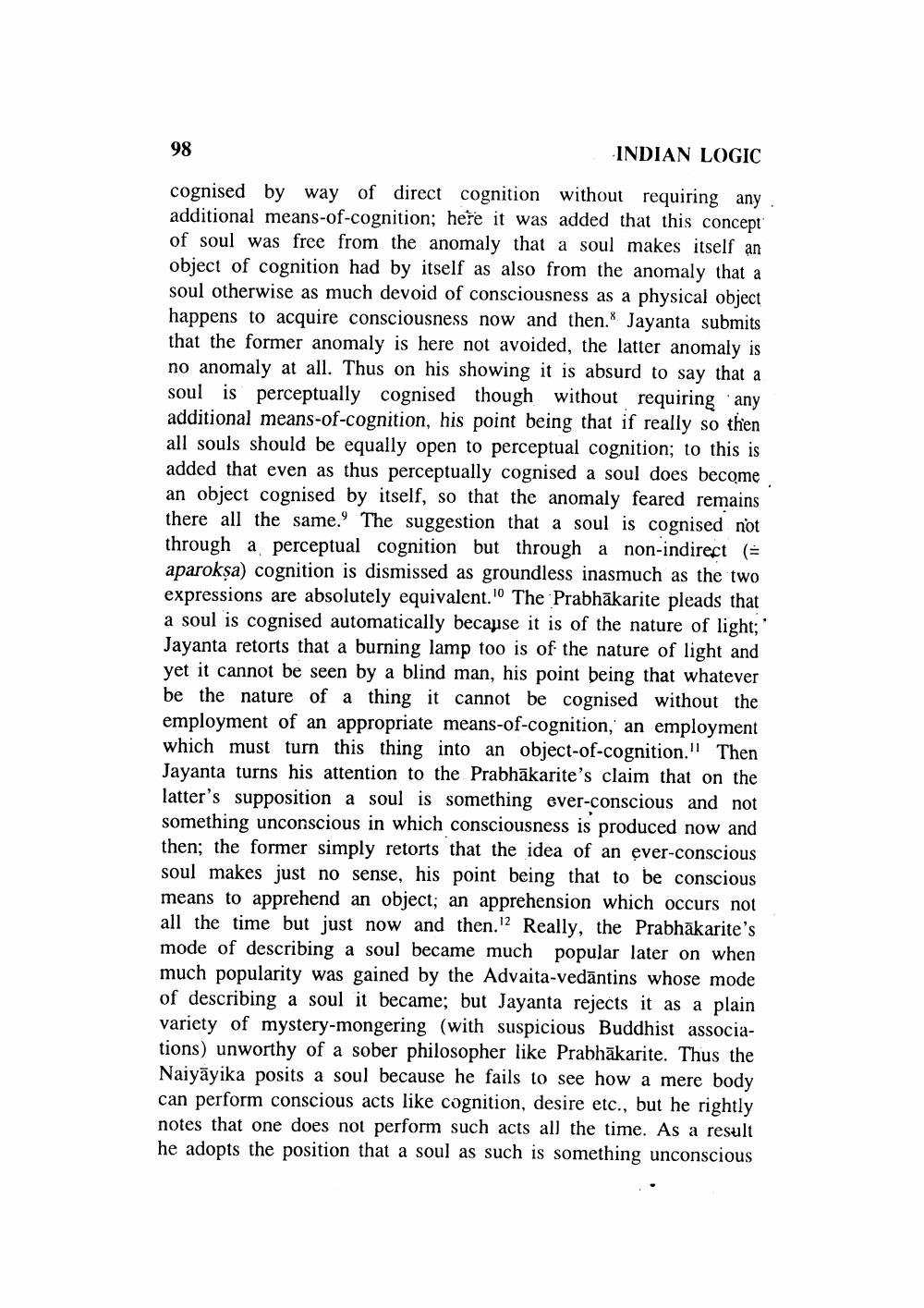________________
98
INDIAN LOGIC cognised by way of direct cognition without requiring any. additional means-of-cognition; here it was added that this concept of soul was free from the anomaly that a soul makes itself an object of cognition had by itself as also from the anomaly that a soul otherwise as much devoid of consciousness as a physical object happens to acquire consciousness now and then. Jayanta submits that the former anomaly is here not avoided, the latter anomaly is no anomaly at all. Thus on his showing it is absurd to say that a soul is perceptually cognised though without requiring any additional means-of-cognition, his point being that if really so then all souls should be equally open to perceptual cognition; to this is added that even as thus perceptually cognised a soul does become an object cognised by itself, so that the anomaly feared remains there all the same. The suggestion that a soul is cognised not through a perceptual cognition but through a non-indirect (= aparoksa) cognition is dismissed as groundless inasmuch as the two expressions are absolutely equivalent. The Prabhākarite pleads that a soul is cognised automatically because it is of the nature of light; Jayanta retorts that a burning lamp too is of the nature of light and yet it cannot be seen by a blind man, his point being that whatever be the nature of a thing it cannot be cognised without the employment of an appropriate means-of-cognition, an employment which must turn this thing into an object-of-cognition." Then Jayanta turns his attention to the Prabhākarite's claim that on the latter's supposition a soul is something ever-conscious and not something unconscious in which consciousness is produced now and then; the former simply retorts that the idea of an ever-conscious soul makes just no sense, his point being that to be conscious means to apprehend an object; an apprehension which occurs not all the time but just now and then."2 Really, the Prabhākarite's mode of describing a soul became much popular later on when much popularity was gained by the Advaita-vedāntins whose mode of describing a soul it became; but Jayanta rejects it as a plain variety of mystery-mongering (with suspicious Buddhist associations) unworthy of a sober philosopher like Prabhākarite. Thus the Naiyāyika posits a soul because he fails to see how a mere body can perform conscious acts like cognition, desire etc., but he rightly notes that one does not perform such acts all the time. As a result he adopts the position that a soul as such is something unconscious




